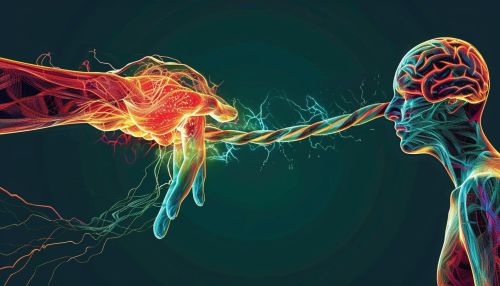Impulse control disorders
Overview
Impulse control disorders (ICDs) represent a group of psychiatric conditions characterized by an inability to resist impulses that could potentially cause harm to oneself or others. These disorders are often chronic and progressive, and they can significantly impact an individual's quality of life. The Diagnostic and Statistical Manual of Mental Disorders, Fifth Edition (DSM-5) classifies several disorders under this category, including kleptomania, pyromania, intermittent explosive disorder, and pathological gambling, among others.


Classification
The DSM-5, a widely accepted diagnostic tool in psychiatry, classifies several disorders as ICDs. These include:
- Kleptomania: Characterized by recurrent failure to resist impulses to steal items that are not needed for personal use or monetary value.
- Pyromania: Characterized by a fascination with fire and the consequences of fire, leading to deliberate and purposeful fire setting on more than one occasion.
- Intermittent explosive disorder: Characterized by recurrent, problematic, impulsive aggression.
- Pathological gambling: Characterized by persistent and recurrent maladaptive gambling behavior.
Other disorders, such as trichotillomania (hair-pulling disorder), compulsive buying disorder, and internet addiction disorder, are also considered ICDs by some clinicians, although they are not officially classified as such in the DSM-5.
Etiology
The exact cause of ICDs is unknown, but they are believed to be the result of a complex interplay of genetic, neurobiological, and environmental factors. Some research suggests that alterations in certain areas of the brain, such as the prefrontal cortex and the basal ganglia, may play a role in the development of these disorders. Additionally, certain neurotransmitters, including dopamine and serotonin, have been implicated in the pathophysiology of ICDs.
Diagnosis
Diagnosis of ICDs is typically made based on the criteria outlined in the DSM-5. This involves a comprehensive psychiatric evaluation, which includes a thorough history of the individual's symptoms, as well as an assessment of their impact on the individual's daily functioning. In some cases, additional psychological testing may be necessary to confirm the diagnosis.
Treatment
Treatment for ICDs typically involves a combination of psychotherapy and medication. Cognitive-behavioral therapy (CBT) is often the first-line treatment, as it can help individuals learn to identify and change patterns of thought that lead to impulsive behavior. In some cases, medications such as selective serotonin reuptake inhibitors (SSRIs) or mood stabilizers may be used to help manage symptoms. However, the effectiveness of these treatments can vary, and more research is needed to identify the most effective treatment strategies for these disorders.
Prognosis
The prognosis for individuals with ICDs can vary widely, depending on the specific disorder and the individual's response to treatment. While some individuals may experience significant improvement with treatment, others may continue to struggle with symptoms over the long term. In general, early intervention and consistent treatment can improve the prognosis for individuals with these disorders.
